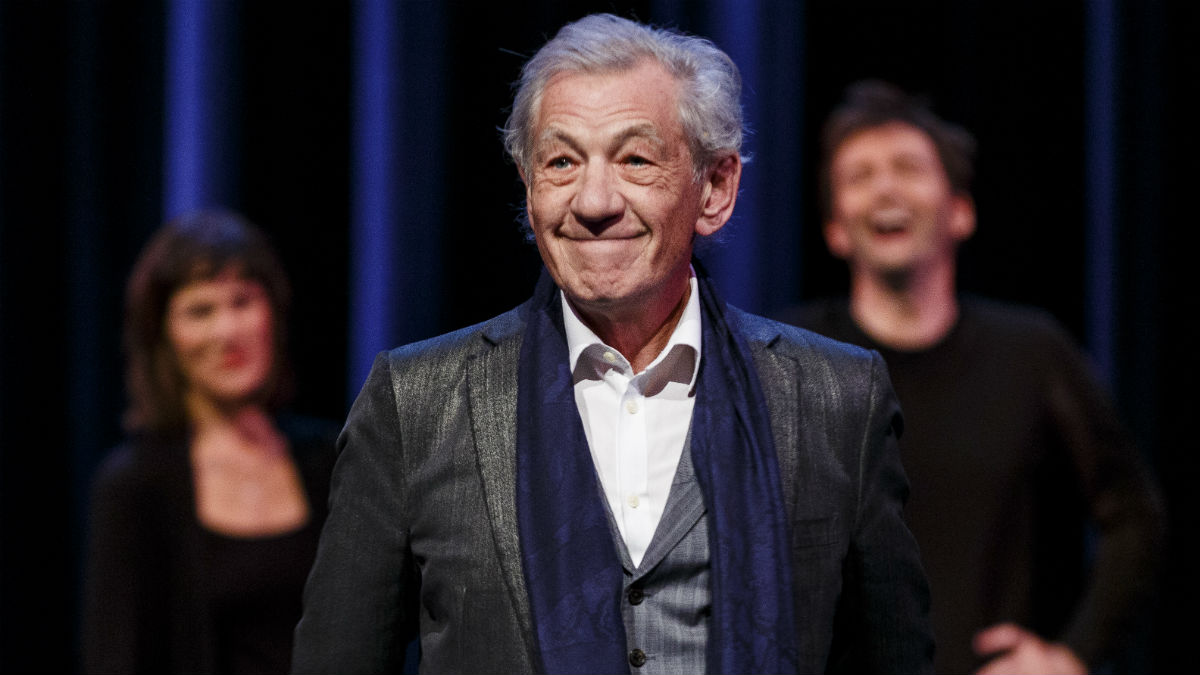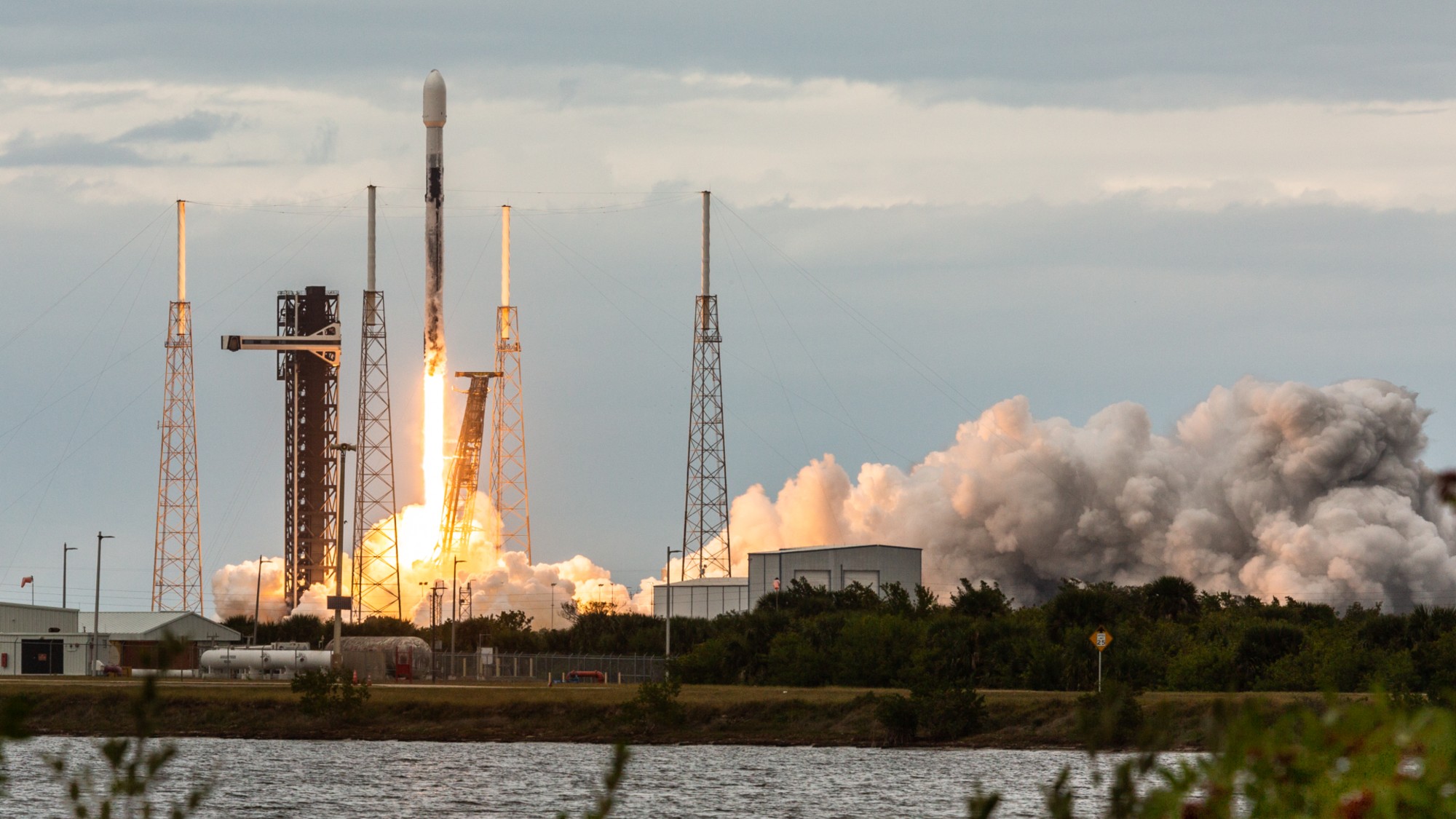Sir Ian McKellen: 'Now is the time to be backing Europe'
Actor says the EU has promoted gay equality, but there is still work to be done in many countries

A free daily email with the biggest news stories of the day – and the best features from TheWeek.com
You are now subscribed
Your newsletter sign-up was successful
Sir Ian McKellen says that gay people should vote to remain in the European Union because of its efforts to protect gay rights internationally.
The Shakespearean actor, also known for his roles in The Lord Of The Rings trilogy and the X-Men films, made the comments in an interview in the Daily Telegraph. McKellen, who came out publicly in 1988 to protest against UK laws prohibiting the promotion of homosexuality, said he had seen vast improvements in gay rights in his lifetime, but there were still improvements to be made.
"There's a lot to be positive about – but not in the countries I'm visiting," he said, referring to his trips to India, China and Russia.
The Week
Escape your echo chamber. Get the facts behind the news, plus analysis from multiple perspectives.

Sign up for The Week's Free Newsletters
From our morning news briefing to a weekly Good News Newsletter, get the best of The Week delivered directly to your inbox.
From our morning news briefing to a weekly Good News Newsletter, get the best of The Week delivered directly to your inbox.
McKellen added that for this reason, he hoped Britain would vote to remain in the EU, because European legislation had helped to enshrine gay equality.
"Now is the time to be backing Europe and giving back that sense of empowerment to countries in the European Union that are still very backward in this regard," he said.
"If I were to look at In or Out from that point of view, there's only one point, which is to stay. If you're a gay person, you're an internationalist. I don't want us to retract. I don't want to and I won't, whatever the vote happens to be."
He added: "It wouldn't be the end of the world, but it's nearly the end of my life. And it's up to the youngsters to decide, really."
A free daily email with the biggest news stories of the day – and the best features from TheWeek.com
McKellen recently slammed India's anti-homosexuality laws in an interview in the Mumbai Mirror, pointing to section 377 of the Indian Penal Code, a colonial law that effectively makes sexual relations between gay men illegal.
"India is going through what the UK went through 30 years ago," he said. "It is appalling and ironical that India would use a colonial law to oppress its homosexuals. India needs to grow up. India needs to realise that it doesn't need to follow British laws anymore."
McKellen recently took a break from acting, having set aside nine months to write his memoirs only to realise he didn't want to do it.
Speaking at the Oxford Literary Festival in April, the actor revealed that he had returned his £1m advance to publishers Hodder & Stoughton, after deciding against writing an autobiography that would chronicle his life and career.
"It was a bit painful. I didn't want to go back into my life and imagine things that I hadn't understood so far," he said.
McKellen reflected on his decision to come out as gay in an interview in Vanity Fair in 2012, where he also discussed Britain's changing attitudes to homosexuality.
"The minute I came out, I felt immediately better in every way," McKellen explained. "I felt relieved that I wasn't lying. You know, when I was growing up in 1950s England, there were no gay clubs I knew about. There were no bars. Homosexuals were shamed publicly and imprisoned. You were on your own, looking over your shoulder all the time, hoping in the handshake of a stranger that he might be somebody gay."
McKellen is set to return to the stage in a revival of Harold Pinter's No Man's Land, co-starring Patrick Stewart, in August.
-
 One great cookbook: Joshua McFadden’s ‘Six Seasons of Pasta’
One great cookbook: Joshua McFadden’s ‘Six Seasons of Pasta’the week recommends The pasta you know and love. But ever so much better.
-
 Scientists are worried about amoebas
Scientists are worried about amoebasUnder the radar Small and very mighty
-
 Buddhist monks’ US walk for peace
Buddhist monks’ US walk for peaceUnder the Radar Crowds have turned out on the roads from California to Washington and ‘millions are finding hope in their journey’
-
 The high street: Britain’s next political battleground?
The high street: Britain’s next political battleground?In the Spotlight Mass closure of shops and influx of organised crime are fuelling voter anger, and offer an opening for Reform UK
-
 ‘Space is one of the few areas of bipartisan agreement in Washington’
‘Space is one of the few areas of bipartisan agreement in Washington’Instant Opinion Opinion, comment and editorials of the day
-
 Biggest political break-ups and make-ups of 2025
Biggest political break-ups and make-ups of 2025The Explainer From Trump and Musk to the UK and the EU, Christmas wouldn’t be Christmas without a round-up of the year’s relationship drama
-
 ‘The menu’s other highlights smack of the surreal’
‘The menu’s other highlights smack of the surreal’Instant Opinion Opinion, comment and editorials of the day
-
 Is a Reform-Tory pact becoming more likely?
Is a Reform-Tory pact becoming more likely?Today’s Big Question Nigel Farage’s party is ahead in the polls but still falls well short of a Commons majority, while Conservatives are still losing MPs to Reform
-
 Taking the low road: why the SNP is still standing strong
Taking the low road: why the SNP is still standing strongTalking Point Party is on track for a fifth consecutive victory in May’s Holyrood election, despite controversies and plummeting support
-
 Is Britain turning into ‘Trump’s America’?
Is Britain turning into ‘Trump’s America’?Today’s Big Question Direction of UK politics reflects influence and funding from across the pond
-
 What difference will the 'historic' UK-Germany treaty make?
What difference will the 'historic' UK-Germany treaty make?Today's Big Question Europe's two biggest economies sign first treaty since WWII, underscoring 'triangle alliance' with France amid growing Russian threat and US distance